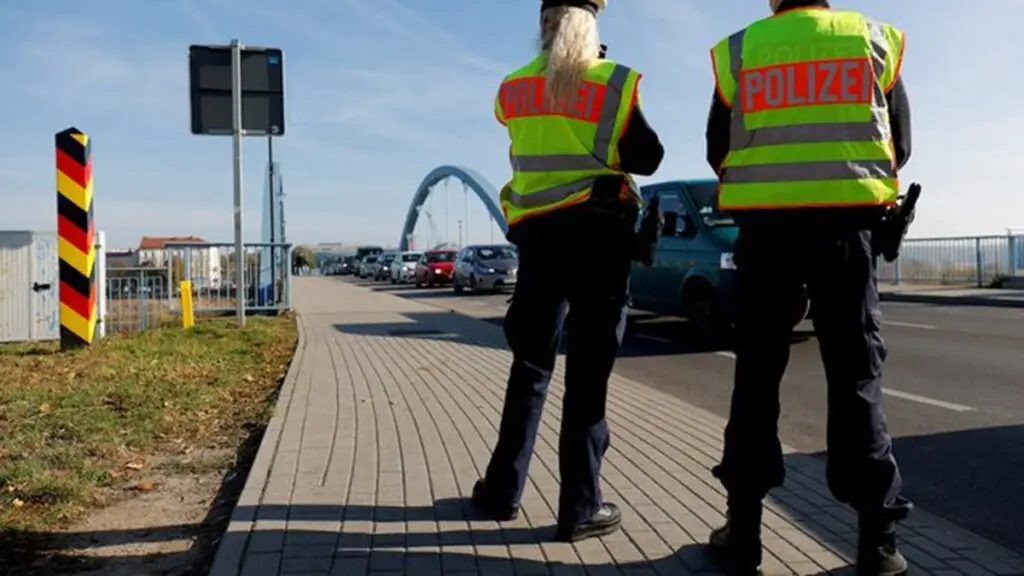
Police officers at a border checkpoint in Germany X / @NytheMalin
Berlin, September 10 (RHC)-- Germany is extending temporary border controls that it already has in place at some of its borders to all of its land borders, the interior minister has said.
Berlin will work closely with neighbouring countries in implementing temporary border controls, according to Interior Minister Nancy Faeser, who added that it would keep the impact on border regions as small as possible.
“We are strengthening our internal security through concrete action and we are continuing our tough stance against irregular migration,” Faeser said in a news conference on Monday.
“It is important for us to act in close partnership with our neighbours and to minimise the impact on commuters and everyday life in border regions,” Faeser said.
Controls on the borders with France, Luxembourg, the Netherlands, Belgium and Denmark would begin on September 16, Faeser said, initially lasting for six months.
The centre-left-led German government has been consulting with the main opposition Christian Democratic Union (CDU) on ways to curb migration in the face of public concern and following a deadly knife attack by a Syrian asylum seeker last month in the city of Solingen.
Last week, the anti-immigration, far-right Alternative for Germany (AfD) party won state elections in Thuringia and came second in Saxony.
Faeser’s Social Democrats face a state election in Brandenburg in two weeks, where the party governs in coalition with the Greens and Christian Democrats.
Germany shares its more than 3,700 km-long (2,300-mile) land border with Denmark, the Netherlands, Belgium, Luxembourg, France, Switzerland, Austria, the Czech Republic and Poland.
Europe’s Schengen area, which includes 25 of the 27 European Union member states and several other countries, allows free travel between them without border controls.
However, member states can reintroduce controls at certain internal borders in case of exceptional circumstances, and several have done so during the COVID-19 pandemic or after attacks.
Germany last year announced stricter controls on its land borders with Poland, the Czech Republic and Switzerland in response to a sharp increase in first-time asylum requests. “Until we achieve strong protection of the EU’s external borders with the new Common European Asylum System, we must increase controls at our national borders even more,” Faeser said.
She noted that Germany already has had more than 30,000 rejections of people seeking to cross its borders since last October.
Austria’s Foreign Minister Gerhard Karner told Bild newspaper on Monday that his country would not take in any refugees or immigrants turned away by Germany at the border. “There’s no room for manoeuvre there,” he said. “It’s the law. I have directed the head of the federal police to not allow any returns.”

